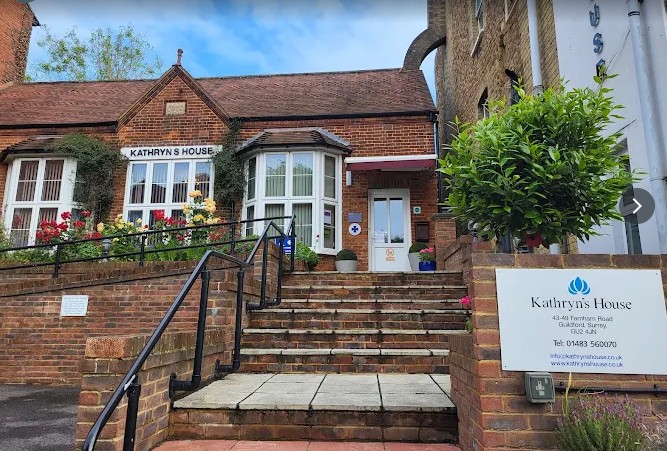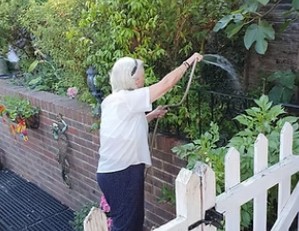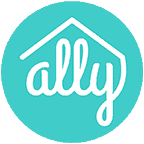
From Safer Nights to Stronger Business: Kathryn’s House Success with Ally
Kathryn’s House is a 27-bed enhanced residential care home in the heart of Guildford, specialising in dementia with mental health. The home supports some of the most complex residents in the area, people that other homes often find too challenging.
Under the leadership of Registered Manager Adam Fowler, the team has built a reputation for taking on difficult cases and turning them around.
But behind the “Outstanding” quality assurance rating, the home faced major night-time challenges: frequent falls, anxious residents being disturbed unnecessarily, and staff stretched thin across the building.
The challenge: Unsafe nights, sleepless residents
Night-time care was the biggest pain point for Kathryn’s House. Staff were stretched by low ratios, residents were being woken for routine checks that disrupted their sleep, and falls were happening too often. As Adam explained:
“We had quite a lot of falls at night, a hell of a lot. Staff weren’t getting to them quickly enough, and residents were being woken up when they didn’t need to be.”
Previous solutions, like sensor mats and beams, were unreliable. Batteries would fail, sensors weren’t always in the right place, and checks were still intrusive. Despite adjusting shift times and even moving residents’ rooms, problems persisted.
The decision: Looking for a third pair of hands
Adam first encountered Ally at a management conference. The promise of real-time monitoring struck a chord.
“I looked at it and thought this is a great device. It’s like having a third staff member at night. I knew it would help us get to residents faster and let me rest easier knowing technology was supporting the team.”
With funding secured, Kathryn’s House became an Ally pilot site. Staff were nervous at first, particularly older night carers unfamiliar with technology, but with hands-on training, video resources, and support from younger colleagues, adoption quickly followed.
Meeting expectations
Adam’s expectations were modest: fewer falls, faster responses, and a bit more staff time at night.
“I was expecting it to be like a sensor mat, just a little bit better. I thought falls would come down and staff would have a bit more time. That’s what I expected.”
And those expectations were met. Falls were cut by more than half, staff had hours back each shift, and night-time checks became more efficient.
Unexpected benefits
But Ally delivered far more than Adam anticipated.
Better sleep, better days
By reducing unnecessary checks, residents slept longer and deeper. This had a ripple effect into daytime wellbeing.
“Residents are sleeping better. Some now only have a first and last check. Even day-time falls are less because they’ve slept longer, and they’re more active and engaged during the day.”

Early health insights
Ally picked up subtle changes in resident health, such as coughing or increased toilet use, which pointed to infections before they escalated.
“We’ve got a resident with COPD, and Ally picked up he was coughing more than usual. We flagged it to the doctor, and it turned out to be a chest infection. Because we caught it earlier, it cleared much quicker than usual for him.”
“One lady is prone to urine infections. After a couple of months using Ally, we noticed she was getting up more at night—two nights in a row. We dipped her urine and found a trace infection, so we caught it much sooner than before.”
Safeguarding with confidence
One safeguarding incident showed the unexpected power of Ally’s audio evidence.
“A resident alleged that a carer had hit him at 5am. The Ally recording proved she wasn’t even in the room. Her name was cleared within hours, and she was incredibly grateful. Without that evidence, it could have dragged on much longer.”
Staff morale and retention
Instead of walking corridors all night, staff had time for deeper cleaning, care plans, or sitting with residents who were awake. This reduced fatigue and boosted morale.
“I worked a couple of night shifts myself and suddenly found I had a spare hour. When we looked at it properly, Ally was saving about four-and-a-half hours every night. That means staff can do care plans, deeper cleaning, or just spend time one-to-one with residents.”
Family reassurance & business growth
Families who might once have worried about low night-time staffing were reassured by Ally. For Kathryn’s House, this translated into real business outcomes.
“When I show families the Ally system and explain how it’s cut our falls by half, it gives them real reassurance. In fact, it’s helped me sell two rooms in the past year and it’s kept some of our more complex residents here, because families and social services can see they’re safer.”
Results at a glance
- Falls reduced by more than 50% (from 5–10 a month to some months with none)
- A drop of 11% disturbing checks
- A reduction of 34% physical checks
- 2.3 hours staff time freed per night
- Faster detection of chest infections and UTIs
- Stronger safeguarding, protecting both staff and residents
- Occupancy uplift with two rooms sold directly due to Ally
The outcome: Confidence, calm and commercial impact
What started as a way to reduce falls has become a transformation in night care, resident wellbeing, and even business performance.
Adam sums it up:
“Ally is like a third staff member at night—falls down by more than half, calmer residents, and time back for real care. It’s one of the best things that’s happened to care homes.”
